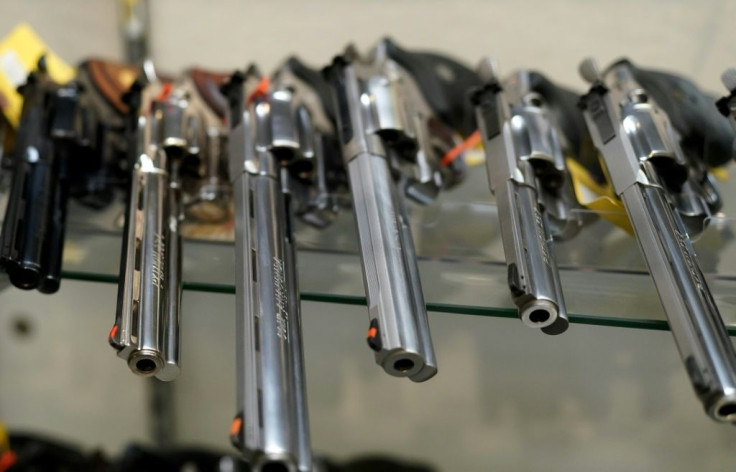Another 2020 Milestone: Firearm Sales

Since the COVID-19 shutdown in March, followed by the collapse of the economy and the civil unrest after the death of George Floyd, firearm sales have shot up dramatically.
The Brookings Institution estimates that 3 million more firearms were sold between March and June than are normally purchased during those months, with half of those sales occurring in June. To put that into perspective, that is more guns sold than after the shootings at Sandy Hook (a little over 1 million), the San Bernardino Department of Health (1 million), and Parkland (400,000) combined.
September, another big month for gun sales, saw US gun shops selling an estimated 1.8 million guns, a 66% increase over September 2019, according to Small Arms Analytics & Forecasting.
On Sept. 2, Jon Barker, CEO of Sportsman’s Warehouse Holdings, Inc., told investors that an estimated 5 million people had bought guns in the first seven months of 2020, according to Reuters. Reuters also reported that a day later, Mark Peter Smith, CEO of Smith & Wesson Brands, Inc., told a conference call with investors that “firearm neophytes accounted for about 40% of sales” this year.
That Americans love guns is not news. We have more guns per capita than any other country in the world. The Geneva-based Small Arms Survey estimates that American civilians own 393 million of the estimated 857 million civilian-owned firearms in the world. And that was in 2017, three years before the hellstorm we know as 2020.
But rather than make us safer, owning a gun actually significantly ups the risk of shooting accidents, domestic violence and suicide. A 2019 study by the National Institutes of Health found that for each time a gun was used for self-defense, there were 11 suicide attempts involving a gun, seven assaults or murders, and four-gun related accidents. It also found that owning a gun “drastically increased” violence in domestic cases. In a home with a domestic violence history, having a gun led to a 500% greater chance that a woman would be killed.
An American Public Health study reported that an assault victim carrying a gun was 4.5 times more likely to be shot and 4.2 times more likely to be killed.
Only five states (California, Hawaii, New Jersey, Illinois and Connecticut) and the District of Columbia require gun owners to have a permit or license, according to the Washington Post. Eight others (Washington, Nebraska, Iowa, Michigan, North Carolina, Maryland, New York and Rhode Island) require a license for some guns. Eight others ban a gun registry, including Idaho, South Dakota, Pennsylvania, Georgia, Florida, Delaware, Vermont and Rhode Island.
At last count, 18 states had “red flag” laws, which permit police or family to ask the state court to order the temporary removal of firearms from someone who presents a danger to others or themselves.
Talk of gun control gains traction after every mass shooting but soon fades into the ether, along with the “thoughts and prayers” of politicians. With so many guns being sold to first-time owners -- who may or may not have received good gun-safety training -- one Pennsylvania state senator is taking a different approach.
Like many other states, gun sales have skyrocketed in Pennsylvania. The commonwealth already ranked 11 among the states in guns per capita. A CBS News study found that the Keystone State’s 5.9 million citizens owned 88,732 registered firearms. That equates to 15 guns for every 1,000 residents.
Pennsylvania State Sen. Andy Dinniman (D) has introduced a law that would ensure prospective gun buyers get the information, training and proper instruction they need, prior to making a purchase. The bill is based on hunter safety courses, which include suicide prevention and other safety issues.
“Firearm ownership is a responsibility,” the senator, who is retiring, told Patch. “As more and more residents seek to purchase firearms, we must promote safety and the importance of taking steps to prevent accidents and violence. That includes not only a basic knowledge of the safe handling and operations of firearms, but also understanding related issues like the legal implications at stake, the danger of guns in situations of mental illness, addiction, domestic abuse and safe interaction with law enforcement when carrying a firearm.”
Robert Calandra is an award-winning journalist, book author and playwright. His work has appeared in national and regional magazines and newspapers.
Published by Medicaldaily.com



























